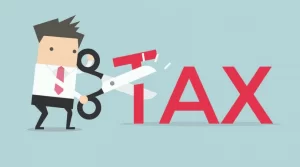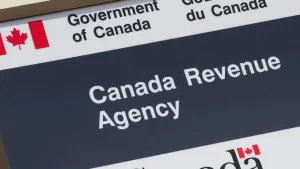Moving to a new country can be an exciting adventure, but it also comes with its fair share of responsibilities. One crucial task for newcomers in Canada is understanding and navigating the Canadian tax system. In this guide, we’ll walk you through the essentials of tax filing, helping you achieve a smooth transition into the Canadian tax landscape. This is a Guide to Tax Filing for Newcomers in Canada.
1. Understanding the Canadian Tax System: Before you dive into the specifics of tax filing, it’s essential to understand the basics of the Canadian tax system. Canada has both federal and provincial/territorial taxes, and residents are required to file taxes with both levels of government. The federal government manages personal income taxes, while the provinces and territories manage their own tax rates and credits.
2. Determine Your Residency Status: The first step in Tax Filing for Newcomers in Canada is determining your residency status for tax purposes. Newcomers who have established residential ties to Canada, such as a home, family, or work, are considered residents. Non-residents only pay taxes on income earned within Canada. Dual-status individuals may need to file taxes in both Canada and their home country.
3. Social Insurance Number (SIN) and Tax Identification: Before you begin tax filing, ensure you have a valid Social Insurance Number (SIN). Your SIN is essential for various financial transactions, including tax filing. You’ll also need to keep track of your individual tax identification number provided by the Canada Revenue Agency (CRA).
4. Taxable Income and Deductions: Understanding what constitutes taxable income and available deductions is crucial for accurate tax filing. Taxable income includes wages, rental income, and investment gains. Deductions can include employment expenses, medical expenses, and tuition fees. Familiarize yourself with both to maximize your tax return or minimize the amount owed.
5. Filing Deadlines: Canadian tax deadlines are typically set for April 30th. However, if you or your spouse are self-employed, the deadline is extended to June 15th. It’s essential to meet these deadlines to avoid penalties or interest charges on outstanding amounts.
6. Filing Options: As a newcomer, you have various options for filing your taxes. You can choose to file online using certified tax software, through a tax professional, or by paper. The online option is quick, convenient, and widely used. Tax professionals can provide expert guidance, ensuring accurate filing.
7. Tax Credits and Benefits: Canada offers numerous tax credits and benefits, including the Canada Child Benefit, GST/HST credit, and various provincial credits. Make sure to research and apply for these credits, as they can significantly impact your overall tax liability.
8. Foreign Income Reporting: If you earned income outside Canada during the tax year, you’ll need to report it to the CRA. Canada has tax treaties with various countries to prevent double taxation, so understanding these agreements is vital.
9. Keep Records: Maintain accurate records of your income, expenses, and receipts. These documents are essential in case the CRA requests verification of your tax return. Proper record-keeping can also help simplify the tax filing process in subsequent years.
10. Seek Professional Assistance: Navigating the Canadian tax system can be complex, especially for newcomers. If you’re unsure about any aspect of tax filing, consider seeking assistance from tax professionals or consulting the CRA’s resources for newcomers.
Abdullah CPA is a specialist is Tax Filling requirements for CRA






